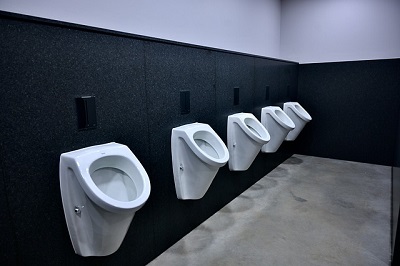Is Inability to Urinate Caused by Prostatitis?
Difficulty urinating is an uncomfortable condition. For some, it is due to frequent urges to urinate but with not much urine in the bladder, making it impossible to expel the urine; for others, despite having a full bladder, various reasons prevent the urine from being smoothly discharged, leading to retention within the bladder. So, is the inability to urinate caused by prostatitis? Let's find out together!

What Causes Inability to Urinate?
For those who feel the urge to urinate frequently but cannot because their bladder is empty, possible reasons include:
1. Psychological tension in specific situations, leading to continuous contraction of the urethral sphincter, creating the urge without actual urine to expel.
2. Dysfunctions of the bladder, urethra, and pelvic floor muscles, leading to bladder dysfunction and resulting in an inability to urinate.
3. Inflammation in the urinary reproductive system, such as urethritis, cystitis, or prostatitis, can stimulate the bladder or urethral mucosa, increasing sensitivity and frequently causing the urge to urinate. In these cases, the bladder may not have sufficient urine, hence the inability to urinate.
For those who cannot smoothly expel urine despite having a full bladder, the likely cause could be urethral obstruction, such as urethral stricture, bladder stones, tumors, or prostate enlargement, which lead to impeded urinary flow.
Is Prostatitis the Cause of Inability to Urinate?
Generally, prostatitis rarely leads to an inability to urinate. The urinary symptoms caused by prostatitis mainly include frequent urination, urgency, pain during urination, and a burning sensation at the urethral opening.
However, some patients with prostatitis may experience an inability to urinate. One reason could be that the inflammation causes congestion and swelling of the urethral mucosa, leading to urinary obstruction. Another reason is that the increased secretion of prostate fluid in prostatitis patients can overflow through the urethra, making patients feel the need to urinate even when there is no urine in the bladder.
Self-Examination for Prostate Diseases
Besides identifying clues from urination issues, there are other signs to look out for, such as discomfort in the genital area (the location between the anus and the scrotum), a sense of heaviness, radiating pain in the lower back and penis, and increased pain during bowel movements. For instance, urethral discharge: a small amount of white discharge from the urethral opening, which may cause the urethral opening to stick together in the morning, and an increase in discharge after urination or straining during bowel movements.
Treatment for Inability to Urinate Caused by Prostatitis
If diagnosed with prostatitis leading to an inability to urinate, treatment should not only focus on antibacterial and anti-inflammatory therapies but also include oral Diuretic and Anti-inflammatory Pill. It can clear heat, detoxify, promote diuresis, activate blood circulation, and relieve pain, effectively treating prostatitis and improving symptoms of inability to urinate.
At the same time, it's important to maintain personal hygiene in daily life, frequently change underwear, avoid sitting for long periods to prevent prolonged pressure on the scrotum, and prevent the spread of inflammation. Attention should also be paid to a healthy diet, consuming fresh fruits and vegetables while avoiding spicy, stimulating, and greasy foods to prevent exacerbating the condition.
Urination Issues as a "Warning Sign"
Experts point out that the male urinary system includes many organs, with the lower urinary tract consisting of the bladder, prostate, and urethra, directly related to urination symptoms. Therefore, any obstruction in these can affect urination, such as urethritis.
Hence, experiencing urination symptoms does not necessarily indicate a problem with the prostate. If you have symptoms related to urination, do not jump to conclusions based on symptoms alone, as they can be unreliable. Do not attempt to self-treat; instead, seek medical attention as soon as possible. Only a hospital can accurately diagnose the condition, and doctors can provide targeted treatment based on the diagnosis.
Recommended Readings:
Is Weak Erection Mostly Related to Prostatitis?
What Type of Prostatitis Causes Pain During Ejaculation?
Beware of Self-Diagnosis Errors: Diseases That Mimic But Are Not Chronic Prostatitis



